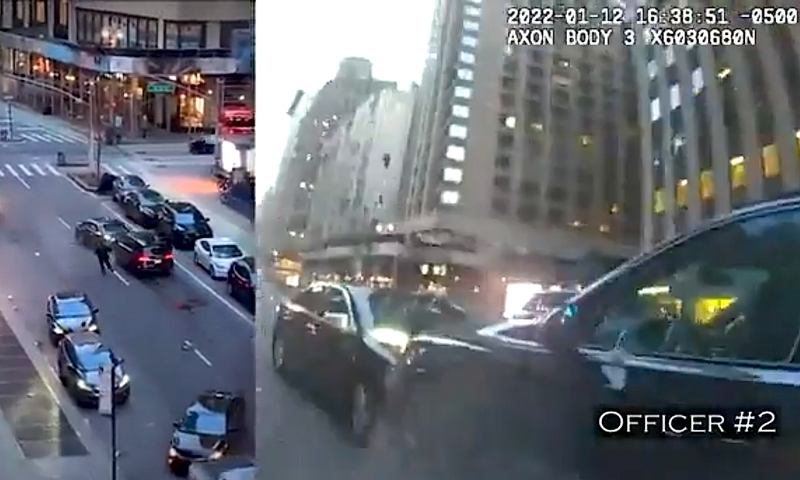
NEW YORK (1010 WINS) -- Carjacking victim Robin is a statistic, but she doesn't want to be. She wants people to think about the victims when they're talking about a rise in crime in New York City. She wants police, district attorneys and politicians to consider the victims—not just the criminals—when discussing bail reform, public policy and prosecution.
Robin, who asked us not to use her full name, spoke exclusively with 1010 WINS reporter Eileen Lehpamer. This is the first time she is sharing her ordeal.
She was carjacked at knifepoint in Lower Manhattan in November 2021. She was driving to work at her usual time. It happened at 5:45 a.m.
Robin said it started when she was rear-ended by at least two men in a car.
Robin said “something was off” so she didn't get out to check the damage to her car. She tried to drive away as quickly as possible. She made it several blocks, but just before she was making a turn, the suspects in the car cut her off and blocked her.
One of the men approached her car and started to apologize for rear-ending her, saying he just wanted to make sure she was all right.
At that point, Robin said he pulled out a “12-inch knife” and demanded her car keys and cell phone. The keys were in the car, so she handed over her cell phone and ran.
“I thought I was going to die,” Robin said. “All I thought about was that my daughter was going to grow up without her mom. I just looked at this guy and thought, ‘This is how it's going to end, after all these years of living?’”
Robin wandered Lower Manhattan until she found a police precinct to report what happened to her.
Robin said police “were not at all surprised.” She then learned about the startling surge in carjackings.
According to NYPD data obtained by 1010 WINS, there were 511 carjackings in the five boroughs in all of 2021. On average, that's nearly 10 people being carjacked every week in New York City. By comparison, in 2018 there were 112 carjackings. That's a 356% increase in four years.
So far this year, police have only released the number of carjackings for the first half of January. There were 20 in 12 days.
As for Robin, the suspect who pulled the knife on her has not been caught, and she said she is traumatized and still not driving in the dark.
She got her car back a few hours after the carjacking when police traced it to the Bronx.
Robin said that when she went to claim the vehicle, there was another stolen car nearby, and that cops told her it was part of a larger carjacking ring, with a half-dozen other cars taken. She said as she was standing there, a man, who police told her had been detained in connection with the stolen cars, returned to the scene. He asked an officer to get his sweatshirt and visor out of the stolen car, Robin said, adding, “You can't make it up. It's actually insane.”
“Don't we deserve to feel safe when we're driving our cars, or going shopping, or doing whatever else we're doing and just trying to live in New York City?” she said. “And I feel like the victims are not part of any conversation when we talk about criminal justice reform or things that need to happen to keep us safe. It's like we're forgotten, everything is always just about the criminal.”
So how are carjackings prosecuted?
Under New York State penal law, a carjacking can be charged as robbery in the first degree or robbery in the second degree.
Both of those offenses are eligible for bail.
Stealing an unoccupied car—as opposed to carjacking—is not a bail-eligible crime under current New York State law.
1010 WINS asked Manhattan District Attorney Alvin Bragg how his office plans to prosecute carjackings.
A spokeswoman supplied a letter the D.A. sent to prosecutors Friday and pointed to a part that says, “The default in gun cases is a felony prosecution.”
She said carjackings when a knife or other weapon is used will also be pursued as a felony.
1010 WINS has requested interviews with both Bragg and NYPD Commissioner Keechant Sewell to talk more about the issue.
Here is the data on carjackings provided by the NYPD:
YTD through Jan. 12, 2022:
Citywide: 20
Full year 2021:
Citywide: 511
Full year 2020:
Citywide: 328
Full year 2019:
Citywide: 132
Full year 2018:
Citywide: 112




